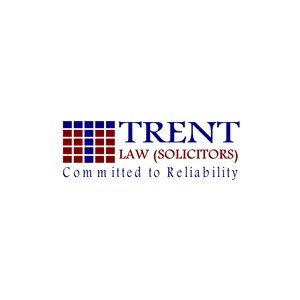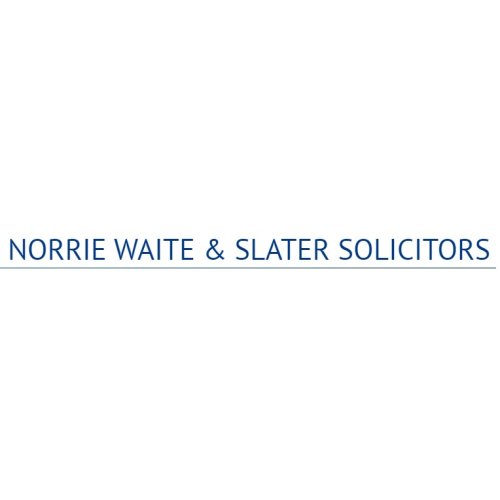Best Landlord & Tenant Lawyers in Sheffield
Share your needs with us, get contacted by law firms.
Free. Takes 2 min.
Free Guide to Hiring a Real Estate Lawyer
List of the best lawyers in Sheffield, United Kingdom
About Landlord & Tenant Law in Sheffield, United Kingdom
Landlord and tenant law in Sheffield, U.K., forms a part of the overall English property law. It governs the renting and leasing of property and the rights of both the landlords and tenants. This area of the law includes topics such as tenant rights, landlord obligations, eviction rules, and housing standards. It's crucial to comprehend the legal complexities involved, whether you're a landlord renting your property or a tenant renting a home.
Why You May Need a Lawyer
Legal help may be required in a variety of scenarios such as disputes over rental arrears, property repairs, possession orders, or illegal evictions. Additionally, if you're a landlord, you might need legal guidance when drawing up tenancy agreements, addressing property disputes, and ensuring you are compliant with tenant laws. A lawyer can provide essential advice on rights, responsibilities, and potential pitfalls in property rentals.
Local Laws Overview
The key laws associated with Landlord and Tenant in Sheffield include the Landlord & Tenant Act 1985, the Housing Act 1988, and the Deregulation Act 2015. These regulate matters such as security of tenure, notices to quit, rent arrears, regulations for an assured tenancy and assured short-hold tenancy. The laws ensure the landlord's right to fair return, and the tenant's right to live in a safe, decent, and well-maintained property.
Frequently Asked Questions
1. What are the rights of the tenants in Sheffield?
Tenants in Sheffield have the right to live in a property that's safe and in a good state of repair, have their deposit returned at the end of the lease, challenge excessively high charges, have the freedom from unfair rent and unfair eviction.
2. What are the responsibilities of landlords in Sheffield?
Landlords are required to maintain the property, carry out repairs, ensure safety standards for gas, electricity, and furniture are met and provide an energy performance certificate for the property. They must protect the tenant's deposit and follow rules of eviction.
3. How can a landlord legally evict a tenant?
A landlord must serve a written notice to the tenant, giving them a chance to rectify the problem if this refers to arrears or damage. If the tenant does not comply, the landlord may apply to the court for a possession order. Evicting without a court order is illegal.
4. Can a tenant withhold rent if repairs are not made?
In general, a tenant cannot withhold rent due to disrepair. It is recommended to seek expert advice on this as a tenant could face eviction for rent arrears if it's not handled correctly.
5. Who is responsible for insuring the property, the tenant or the landlord?
The landlord is typically responsible for insuring the building and any fixtures or fittings. The tenant may choose to insure their possessions inside the property.
Additional Resources
For further information, one can refer to the UK Government's official website - gov.uk for advice regarding housing and local services. There are other helpful resources like the Citizens Advice Bureau and housing advice centres, which provide free help with housing issues.
Next Steps
If you need legal assistance, the first step is to seek professional legal advice. Locate a reputable solicitor specializing in Landlord & Tenant law, which could be either a law firm in Sheffield or a body like the Citizen's Advice Bureau. The professional can guide you through the process, ensuring you understand your rights and obligations.
Lawzana helps you find the best lawyers and law firms in Sheffield through a curated and pre-screened list of qualified legal professionals. Our platform offers rankings and detailed profiles of attorneys and law firms, allowing you to compare based on practice areas, including Landlord & Tenant, experience, and client feedback.
Each profile includes a description of the firm's areas of practice, client reviews, team members and partners, year of establishment, spoken languages, office locations, contact information, social media presence, and any published articles or resources. Most firms on our platform speak English and are experienced in both local and international legal matters.
Get a quote from top-rated law firms in Sheffield, United Kingdom — quickly, securely, and without unnecessary hassle.
Disclaimer:
The information provided on this page is for general informational purposes only and does not constitute legal advice. While we strive to ensure the accuracy and relevance of the content, legal information may change over time, and interpretations of the law can vary. You should always consult with a qualified legal professional for advice specific to your situation.
We disclaim all liability for actions taken or not taken based on the content of this page. If you believe any information is incorrect or outdated, please contact us, and we will review and update it where appropriate.















